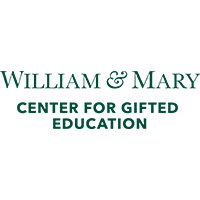This unit highlights persuasion, especially as it relates to oral communication. Emphasis is placed on providing evidence for opinions. Students must give passages from literature to defend their points of view in discussion as well as in written arguments. Opportunities are presented for impromptu speeches, informative and persuasive speeches, debate, small and large group discussion, and critical listening skills.
The Student Literature Workbook eBook includes fillable student activity pdfs that support lessons and each unit’s readings and novels. The workbook engages students in exploring carefully selected, challenging works of literature from various times, cultures, and genres. They include:
- Letter to Student
- Model Overview
- Glossary of Literary Terms
- Vocabulary List
- Readings
- Activity Pages
A 1-Year License will provide each student with access to the eBook and digital materials through our online platform, Flourish.
- Letter to Students
- Glossary of Literary Terms
- Models
- Readings and Activity Pages
- Lesson 1: Preassessments for Literary Interpretation and Opinion Writing
- Lesson 2: The Concept of Change
- Lesson 3: Introduction to Literary Analysis, Grammar, and Vocabulary Study
- Lesson 4: The Adventures of Tom Sawyer and the Idea of Persuasion
- Lesson 5: The Hamburger Model of Persuasive Writing
- Lesson 6: Introduction to Persuasive Speaking
- Lesson 7: Discussion of Asian American Literature
- Lesson 8: Reasoning
- Lesson 9: Persuasion in Historical Documents
- Lesson 10: Discussion of African American Literature
- Lesson 11: Introduction to the Unit Research Project
- Lesson 12: Persuasion in “The Pied Piper of Hamelin”
- Lesson 13: Introduction to Debate
- Lesson 14: Persuasion and Social Justice
- Lesson 15: Discussion of Hispanic American Literature
- Lesson 16: Persuasion and the Public Interest
- Lesson 17: Debate Presentations
- Lesson 18: Persuasion and Freedom
- Lesson 19: Persuasion in Advertising
- Lesson 20: Discussion of Native American Literature
- Lesson 21: The Valiant
- Lesson 22: Research Presentation
- Lesson 23: Closing Discussion of the Concept of Change
- Lesson 24: Postassessments of Literary Interpretation and Persuasive Writing
- Acknowledgments

COLLEGE OF WILLIAM & MARY
The Center for Gifted Education (CFGE) at William & Mary University (College of William & Mary), is a research and development center providing services to educators, policy makers, graduate students, researchers, and parents in support of the needs of gifted and talented individuals.
Located in Williamsburg, Virginia, the CFGE has established an international reputation for excellence in research, curriculum development, and service. Several major grants, including funding from the Jacob K. Javits Gifted and Talented Students Education Act, have provided significant support for the work of the Center. In 2012, the Jack Kent Cooke Foundation awarded CFGE the funds needed for a summer residential camp for low income, high-ability children, for four consecutive years. In 2015, William & Mary alumni, Mike and Nancy Petters, through the Petters Family Foundation, provided additional financial support to the program. In 2016, the Petters Family Foundation has committed to fully fund the program for the next four years. Camp Launch is only the beginning of the Center for Gifted Education’s goal to bring educational equality to all gifted students.